目次
ニーチェ晩年の傑作『反キリスト者(アンチクリスト)』あらすじ解説~ドストエフスキー「大審問官の章」や仏教とのつながりについて
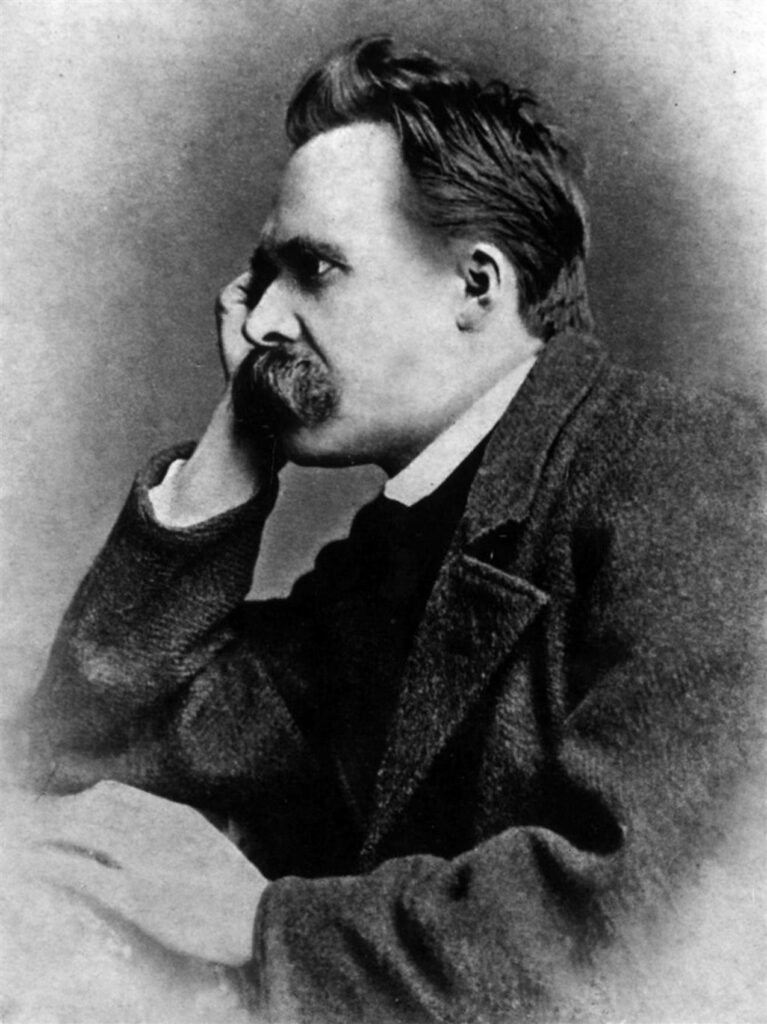 フリードリヒ・ニーチェ(1844-1900)wikipediaより
フリードリヒ・ニーチェ(1844-1900)wikipediaより
今回ご紹介するのは1888年にニーチェによって発表された『反キリスト者(アンチクリスト)』です。
私が読んだのはちくま学芸文庫版、原祐訳『ニーチェ全集14 偶像の黄昏 反キリスト者』所収の『反キリスト者』です。(※参考書等では『反キリスト者』を『アンチクリスト』と訳しているものが多いので以下この作品については『アンチクリスト』のほうで記載していきます)
早速この本について見ていきましょう。ニーチェ晩年の思想を解説した西尾幹二著『西尾幹二全集第五巻 光と断崖ー最晩年のニーチェ』では次のように述べられています。
私がかねてから最後の時期のニーチェの傑作と見ているのは、通説と違って『この人を見よ』ではなく、『アンチクリスト』なのだが、なぜこの一作に限って、語り口のトーンがきわめて高いままに客観的で、説得的で、形式上も完結性を具えているのか、久しく疑問を抱いていたその理由が解け始めたのである。ニーチェはいよいよ最後の段階で、あの最高の価値の問題にけりをつけようとしたからなのだ。そしてそのために、劇的に効果のある、よく引き緊まったキリスト教批判の一書を世に問うことにした。(中略)
事実、『アンチクリスト』は他の彼の著作と違って、統一テーマを畳み掛けるように論じて行く、説得調の展開が際立っている。論の組み立て、構成もしっかり計算されているし、読者に訴え掛ける劇的な語り口も秀抜である。彼は伝達のための何かを発見したのだ。文学形式に一つの新境地を拓いたのだと言ってもいい。
国書刊行会、西尾幹二『西尾幹二全集第五巻 光と断崖ー最晩年のニーチェ』P29-30
ニーチェ研究者の西尾幹二氏はこの作品を晩年の傑作とし、ニーチェの対キリスト教思想における最重要の作品と見なしています。
西尾氏はこの作品の中心テーマについて次のように述べます。
『アンチクリスト』の中心テーマは、次の短い一文にいわば要約されている。
……私はキリスト教の本当の歴史を物語ることにしよう。―すでにキリスト教という言葉が、一つの誤解だ。―つき詰めていけば、キリスト教徒はただ一人しかいなかった。そしてその人は十字架につけられて死んだのだ。《福音》は、十字架上で死んだのだ。この一刻を境にして、以後《福音》と呼ばれたものは、すでに、この人物が身をもって生きたものの反対物であった。(第三十九節)
ニーチェがイエスの神聖さを認めていたか否かは別として、イエスが身を以て生きたような生活、その模範的な死に方、ルサンチマンの感情をことごとく超え出た自由感、超越感に、彼が一目置いていたことは紛れもない。一目置いていた、というより、イエスの比類のない実行を、既成のあらゆるキリスト教的解釈から切り離してどう理解するかが、『アンチクリスト』の最も重要な主題の一つであったと言える。
そしてもう一つの重要な主題は、これとは反対に、弟子たちがイエスを誤解し、福音とはまるきり正反対のものから教会という権力組織を築き上げた必然性を、犀利な心理的洞察をもって描き出すことであった。
イエスがすでにわが身をもってけりをつけ、自分の背後に片づけたと感じている同じものを、人類は「教会」の概念において神聖視しつづけて来たのだ、とニーチェは見る。この意味においてキリスト教の歴史は、イエスが示したような福音の根源的意義を、一歩一歩しだいに粗雑に誤解して行くプロセスに外ならなかったという。
パウロ以後、事態はひどくなる一方である。ニーチェはパウロがイェルサレムの原始キリスト教教会のユダヤ主義を克服して、異邦人のためにキリスト教を普遍化し、世界宗教に仕立てたという説―キリスト教史のいわば常識的前提―を、まるきり頭から信じない。歴史的キリスト教を弾劾する点において、彼はじつに容赦がない。
※一部改行しました
国書刊行会、西尾幹二『西尾幹二全集第五巻 光と断崖ー最晩年のニーチェ』P32-33
キリスト教徒はただひとりしかいない。しかもその人は十字架で死んだというニーチェの説はなかなかに衝撃的ですよね。「神は死んだ」という言葉とはまた違った衝撃があります。
ニーチェはこの作品でキリスト教教団がいかにして成立し現在まで続くかを心理的、歴史的に考察していきます。その切れ味は凄まじいほどで、これをぶつけられたら教団側も何と答えるのだろうかとこっちが固唾を飲んでしまうほどです。
そしてドストエフスキーという観点からニーチェを読んでいる私にとってはどうしてもこの『アンチクリスト』の主題が『カラマーゾフの兄弟』の大審問官の章と重なって見えてきます。
あわせて読みたい
『カラマーゾフの兄弟』大審問官の衝撃!宗教とは一体何なのか!私とドストエフスキーの出会い⑵
『カラマーゾフの兄弟』を読んで、「宗教とは何か」「オウムと私は何が違うのか」と悩んでいた私の上にドストエフスキーの稲妻が落ちます。
私は知ってしまいました。もう後戻りすることはできません。
これまで漠然と「宗教とは何か」「オウムと私は何が違うのか」と悩んでいた私に明確に道が作られた瞬間でした。
私はこの問題を乗り越えていけるのだろうか。
宗教は本当に大審問官が言うようなものなのだろうか。
これが私の宗教に対する学びの第二の原点となったのでした。
ドストエフスキーもカトリック教団の歴史と疑問点をイワンの口を通して極限まで突き詰めていきます。ニーチェもドストエフスキーも極限まで探究せざるをえない狂気の思索家でした。こうした2人の特徴が『アンチクリスト』を通して見えてくるように思いました。
また、ニーチェはこの作品を書くにあたり、ドストエフスキーの『悪霊』を参考にしていたことが彼の遺稿から明らかになっています。グロイター版を底本にした白水社版『ニーチェ全集第十巻(第Ⅱ期)』のその箇所を見てみると、『悪霊』のかなりの部分が抜き書きされていることがわかります。西尾氏もこうしたドストエフスキーとのつながりを指摘しています。
そして個人的にこの作品で興味深かったのが、仏教とのつながりです。この作品ではキリスト教に対して容赦ない攻撃を浴びせかけますが、仏教に対してはかなり好意的です。本文をそのまま引用すると難しくなってしまうので西尾氏による解説を引用します。
第二十―二十三節は「仏教とキリスト教」という原題を持っていて、ニーチェはキリスト教を断罪する一方において、仏教を「老成した人間のための宗教」と呼んで大いに持ち上げている。仏教はキリスト教に比べ「百倍も冷静で、誠実で、客観的」な宗教、神という概念に出現当時すでに始末をつけている「百倍も現実主義的」な宗教だと規定し、興味深い比較宗教論を展開している
国書刊行会、西尾幹二『西尾幹二全集第五巻 光と断崖ー最晩年のニーチェ』P38
ニーチェはショーペンハウアーの影響を受けていたこともあり、仏教思想にも関心を持っていました。
あわせて読みたい
橋本智津子『ニヒリズムと無』あらすじと感想~ニヒリズムと仏教思想の繋がりを学ぶのにおすすめ
この本ではショーペンハウアーとニーチェのインド思想との繋がりについて見ていくことになります。
ショーペンハウアーやニーチェが実際にインド哲学や仏教のどの文献を参考し、自らの思想の糧としたかを見ていくことになります。
そのことについては以前紹介した上の本にも書かれていましたが、『アンチクリスト』では明確に仏教についてのニーチェの見解が示されています。これは僧侶である私にとっても非常に興味深いものでした。
『アンチクリスト』は西尾幹二氏が述べるように私もニーチェ作品の中でも特に優れた作品であるように思えます。何より、読みやすい!そしてその思想の強烈たるや!この本はニーチェ作品の中で私の一番のお気に入りの作品です。ドストエフスキーが好きな方には特におすすめしたい1冊です。
以上、「ニーチェ晩年の傑作『反キリスト者(アンチクリスト)』あらすじ解説ードストエフスキー「大審問官の章」や仏教とのつながりについて」でした。
Amazon商品ページはこちら↓
ニーチェ全集 14 (ちくま学芸文庫 ニ 1-14)
次の記事はこちら
あわせて読みたい
ニーチェ『この人を見よ』あらすじと感想~発狂直前に書かれたニーチェ最後の作品
この本の巻末解説によると、この作品はニーチェの誕生日10月15日に書き始められ11月4日には脱稿するという驚異的スピードで書かれた作品です。1889年1月初頭にはニーチェは発狂してしまうのでまさにこの作品は発狂直前のニーチェ最後の姿を知ることができる1冊となっています。
前の記事はこちら
あわせて読みたい
ニーチェ『偶像の黄昏』あらすじと感想~ドストエフスキー、フランクル『夜と霧』とのつながりとは
『偶像の黄昏』は価値転換の書というべき、私たちの価値観を揺さぶる強烈な言葉が続きます。
そしてここで語られる内容はこの直後に発表される『反キリスト者(アンチクリスト)』という作品に直結していきます。
ニーチェおすすめ作品、参考書一覧記事はこちらです
あわせて読みたい
ニーチェおすすめ作品7選と解説記事一覧~ニーチェは面白い!哲学だけではなくその人生、人柄にも注目です
ニーチェの哲学書と言えばとにかく難解なイメージがあるかもしれませんが、それでもなお現代まで多くの人に愛され続けているのも事実です。難解なだけでなく、やはりそこに何か読者の心を打つような強いメッセージがあるからこそ多くの人に読まれ続けているのだと思います。
今回はそんなニーチェの哲学書の中でも私がおすすめしたい7つの作品とニーチェに関する興味深い解説をまとめた記事をいくつか紹介していきます。
あわせて読みたい
おすすめニーチェ解説書10選~ニーチェとは何者なのか、その思想を学ぶために
この記事では私のおすすめするニーチェの解説書10冊をご紹介していきます。
これから紹介する本を見て皆さんは驚かれるかもしれませんが、一般的に「ニーチェ 入門」と検索しておすすめされる本とはたしかに違うラインナップです。ニーチェ入門の本を探している方にはハードルが高いと思われるかもしれませんが、実際読んで頂ければわかると思いますがとても丁寧でわかりやすい解説書ばかりです。
関連記事
あわせて読みたい
ドストエフスキーおすすめ作品7選!ロシア文学の面白さが詰まった珠玉の名作をご紹介!
ドストエフスキーといえば『罪と罰』や『カラマーゾフの兄弟』など文学界では知らぬ者のない名作を残した圧倒的巨人です。彼は人間心理の深層をえぐり出し、重厚で混沌とした世界を私達の前に開いてみせます。そして彼の独特な語り口とあくの強い個性的な人物達が織りなす物語には何とも言えない黒魔術的な魅力があります。私もその黒魔術に魅せられた一人です。
この記事ではそんなドストエフスキーのおすすめ作品や参考書を紹介していきます。またどの翻訳がおすすめか、何から読み始めるべきかなどのお役立ち情報もお話ししていきます。
あわせて読みたい
トルストイ『わが信仰はいずれにありや』あらすじと感想~トルストイの真理探究とその結末にニーチェを...
私はトルストイのこの作品を読み始めてすぐ、うっすらとではありますがニーチェ的なものを感じました。
そしてそのうっすらとした予感は確信へと変わることなります。
トルストイはこの作品で教会を批判し、自身の信仰、思想を開陳していきます。
私はそれらトルストイの言葉に、自らの理性によって真理を掴み、それにより自己完成を目ざさんとするニーチェ的な感性を感じたのでありました。
あわせて読みたい
ニーチェとドストエフスキーの比較~それぞれの思想の特徴とはー今後のニーチェ記事について一言
ニーチェの言葉には悪魔的な強さがあります。その感染力たるや凄まじいものがあります。
しかし、最近ニーチェ関連の参考書を読んだり、ニーチェ作品を改めて読み返してみると、これまでとは違ったニーチェが私の前に現れてきました。
あわせて読みたい
W.シューバルト『ドストエフスキーとニーチェ その生の象徴するもの』あらすじと感想~2人のキリスト教...
著者は絶対的な真理を追い求める両者を神との関係性から見ていきます。
さらにこの本では『罪と罰』の主人公ラスコーリニコフや『カラマーゾフの兄弟』のイワンとニーチェの類似についても語っていきます。理性を突き詰めたドストエフスキーの典型的な知識人たちの破滅とニーチェの発狂を重ねて見ていきます。これもものすごく興味深かったです。
あわせて読みたい
なぜニーチェは難しいのか、人によって解釈が異なるのか~ドストエフスキーとの共通点
タイトルにもありますようにニーチェといえばとにかく難しいというイメージがありますよね。
今回の記事ではなぜニーチェはこんなに難しいのか、そして多様な解釈が存在するのかということを考えていきたいと思います。
あわせて読みたい
ニーチェ発狂の現場と『罪と罰』ラスコーリニコフの夢との驚くべき酷似とは
1889年1月、ニーチェ45歳の年、彼は発狂します。彼が発狂したというエピソードは有名ですがその詳細に関しては私もほとんど知りませんでした。
しかし、参考書を読み私は衝撃を受けました。その発狂の瞬間がドストエフスキーの代表作『罪と罰』の主人公ラスコーリニコフが見た夢とそっくりだったのです。
あわせて読みたい
ニーチェ『善悪の彼岸』『道徳の系譜』あらすじと感想~道徳の起源とキリスト教倫理の成立を分析した作品
「深淵をのぞきこんでいれば、深淵もまたお前をのぞきこむ」という有名な言葉が収録されている『善悪の彼岸』。
そして『道徳の系譜』ではニーチェはキリスト教世界における道徳の歴史を分析し、考察します。
『道徳の系譜』はニーチェ作品の中でも特に私の印象に残っている作品です。また、ニーチェの思想を知る上でもとてもおすすめな作品です。
あわせて読みたい
『ツァラトゥストラ』にニーチェの孤独の寂しさを感じる~「神は死んだ」で有名な代表作
ニーチェは誰からも理解してもらえない孤独に苦しんでいたのでないか。理解されたくもないような人たちばかりの現実に苦しんでいたのではないか。この攻撃的な言葉は彼の孤独の苦しさ、寂しさの吐露ではないかとも思えるようになったのです。この記事ではニーチェの書簡なども見ていきながらニーチェの孤独について考えてみたいと思います。
あわせて読みたい
ドストエフスキーの最高傑作『カラマーゾフの兄弟』あらすじと感想~神とは?人生とは?自由とは?
『カラマーゾフの兄弟』が発表されてから120年。これだけの月日が経っても変わらずに多くの人から愛され続けているのはそれなりの理由があります。
この物語が持つ魅力があるからこそ、読者に訴えかける何かがあるからこそ、こうして読み継がれているのだと思います。
『カラマーゾフの兄弟』はドストエフスキー作品の中でも私が最も好きな、そして思い入れのある作品です。
長編小説ということでなかなか手に取りにくい作品ではありますが、心の底からおすすめしたい作品です。
あわせて読みたい
ニーチェ書簡におけるドストエフスキーへの言及について~ニーチェとドストエフスキーのつながりとは
前回の記事で紹介した『ニーチェ書簡集』ではドストエフスキーについて書かれた箇所がいくつも出てきます。今回はそんなドストエフスキーに対するニーチェの言及が書かれている箇所を紹介していきたいと思います。
ドストエフスキーをニーチェとの関係から考えていくという試みをしていく中で非常に興味深い内容がそこにありました。
『ニーチェ書簡集』はニーチェの素顔を知る上でも非常に興味深い作品ですが、ドストエフスキーとの関係を知る上でもとてもおすすめな一冊となっています。
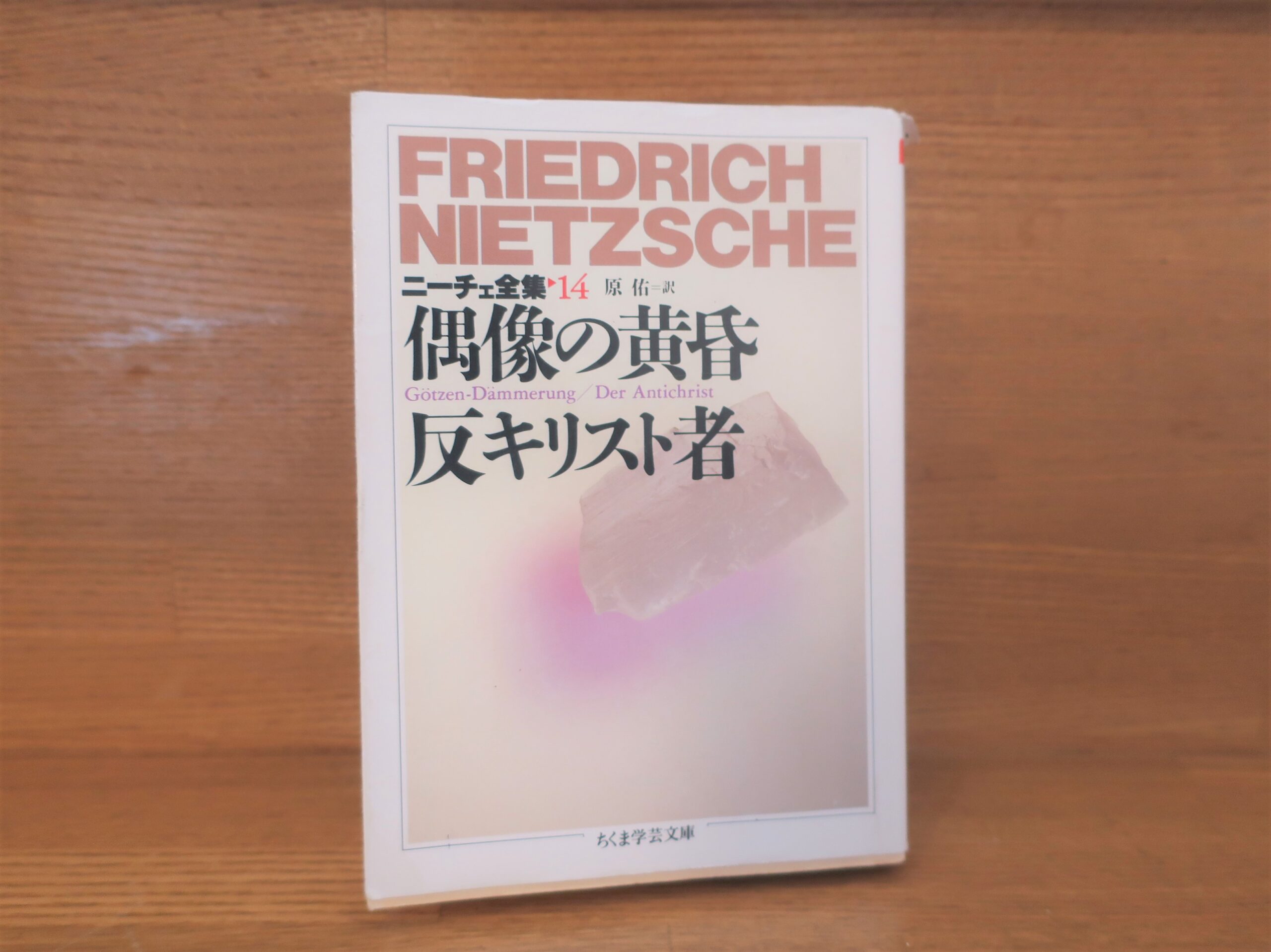

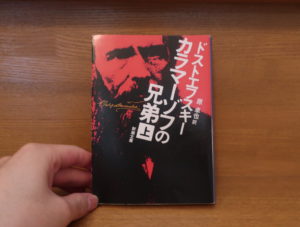
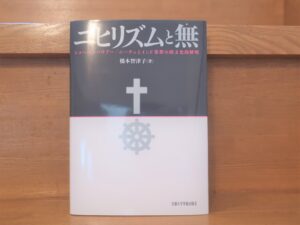


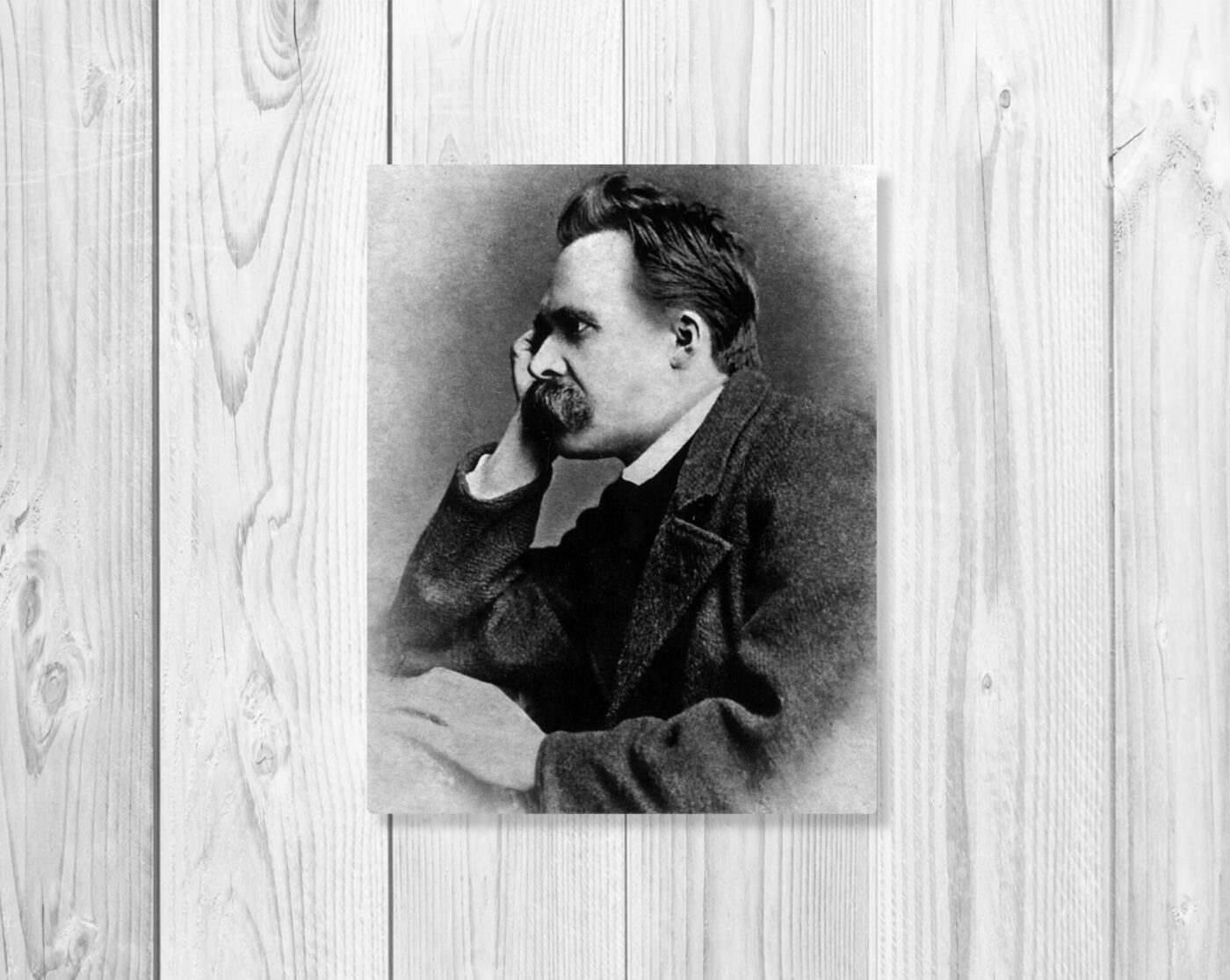
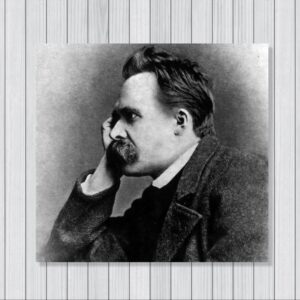
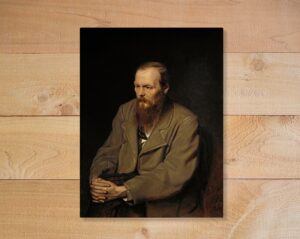

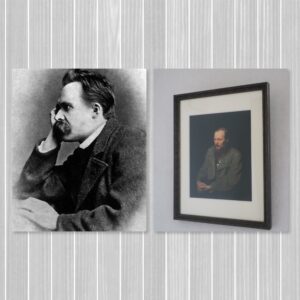
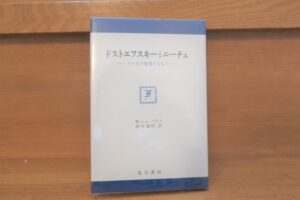


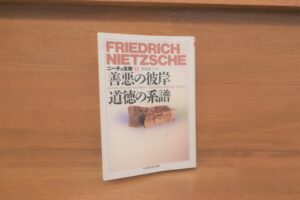





コメント